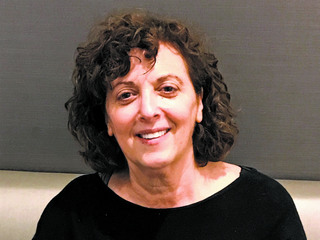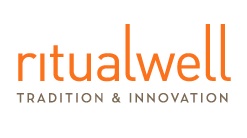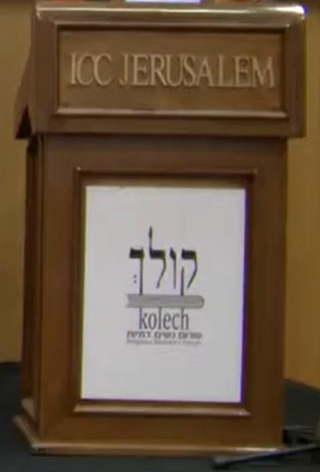Related Research Articles
Feminist theology is a movement found in several religions, including Buddhism, Hinduism, Sikhism, Neopaganism, Baháʼí Faith, Judaism, Christianity and New Thought, to reconsider the traditions, practices, scriptures, and theologies of those religions from a feminist perspective. Some of the goals of feminist theology include increasing the role of women among clergy and religious authorities, reinterpreting patriarchal (male-dominated) imagery and language about God, determining women's place in relation to career and motherhood, studying images of women in the religions' sacred texts, and matriarchal religion.

The role of women in Judaism is determined by the Hebrew Bible, the Oral Law, by custom, and by cultural factors. Although the Hebrew Bible and rabbinic literature mention various female role models, religious law treats women differently in various circumstances. According to a 2017 study by the Pew Research Center, women are slightly more likely to identify with Judaism. They account for 52% of the worldwide Jewish population.
Judith Rebecca Hauptman is an American feminist Talmudic scholar.
Jewish feminism is a movement that seeks to make the religious, legal, and social status of Jewish women equal to that of Jewish men in Judaism. Feminist movements, with varying approaches and successes, have opened up within all major branches of the Jewish religion.

Tova Hartman is the Dean of Humanities at the Ono Academic College.

Women of the Wall is a multi-denominational Jewish feminist organization based in Israel whose goal is to secure the rights of women to pray at the Western Wall, also called the Kotel, in a fashion that includes singing, reading aloud from the Torah and wearing religious garments. Pew Research Center has identified Israel as one of the countries that place "high" restrictions on religion, and there have been limits placed on non-Orthodox streams of Judaism. One of those restrictions is that the Rabbi of the Western Wall has enforced gender segregation and limitations on religious garb worn by women. When the "Women of the Wall" hold monthly prayer services for women on Rosh Hodesh, they observe gender segregation so that Orthodox members may fully participate. But their use of religious garb, singing and reading from a Torah have upset many members of the Orthodox Jewish community, sparking protests and arrests. In May 2013 a judge ruled that a 2003 Israeli Supreme Court ruling prohibiting women from carrying a Torah or wearing prayer shawls had been misinterpreted and that Women of the Wall prayer gatherings at the wall should not be deemed illegal.
Rachel Adler is Professor Emerita of Modern Jewish Thought and Judaism and Gender at Hebrew Union College, at the Los Angeles campus.
Judith Plaskow is an American theologian, author, and activist known for being the first Jewish feminist theologian. After earning her doctorate at Yale University, she taught at Manhattan College for thirty-two years before becoming a professor emerita. She was one of the creators of the Journal for Feminist Studies in Religion and was its editor for the first ten years. She also helped to create B'not Esh, a Jewish feminist group that heavily inspired her writing, and a feminist section of the American Academy of Religion, an organization of which she was president in 1998.

Paula Hyman was a social historian and the Lucy Moses Professor of Modern Jewish History at Yale University.
Rabbi Rebecca Trachtenberg Alpert is Professor of Religion Emerita at Temple University, and was one of the first women rabbis. Her chief academic interests are religions and sports and sexuality in Judaism, and she says that her beliefs were transformed by a Sabbath prayer book that refers to God as 'She'.
Gender and Jewish Studies is an emerging subfield at the intersection of gender studies, queer studies, and Jewish studies. Gender studies centers on interdisciplinary research on the phenomenon of gender. It focuses on cultural representations of gender and people's lived experience. Similarly, queer studies focuses on the cultural representations and lived experiences of queer identities to critique hetero-normative values of sex and sexuality. Jewish studies is a field that looks at Jews and Judaism, through such disciplines as history, anthropology, literary studies, linguistics, and sociology. As such, scholars of gender and Jewish studies are considering gender as the basis for understanding historical and contemporary Jewish societies. This field recognizes that much of recorded Jewish history and academic writing is told from the perspective of “the male Jew” and fails to accurately represent the diverse experiences of Jews with non-dominant gender identities.
Orthodox Jewish feminism is a movement in Orthodox Judaism which seeks to further the cause of a more egalitarian approach to Jewish practice within the bounds of Jewish Law. The major organizations of this movement is the Jewish Orthodox Feminist Alliance (JOFA) in North America, and Women of the Wall (WOW) and its affiliates in Israel and internationally, known as The International Committee for Women of the Wall (ICWOW). In Israel, the leading Orthodox feminist organization is Kolech, founded by Dr. Chana Kehat. In Australia, there is one Orthodox partnership minyan, Shira Hadasha, in Melbourne.
Elyse Goldstein is a Canadian Reform rabbi. She is the first woman to be elected as president of the interdenominational Toronto Board of Rabbis and president of the Reform Rabbis of Greater Toronto.
Danya Ruttenberg is an American rabbi, editor, and author.
Sybil Ann Sheridan is a writer and British Reform rabbi. She was chair of the Assembly of Reform Rabbis UK at the Movement for Reform Judaism from 2013 to 2015 and was Rabbi at Wimbledon and District Synagogue in south west London. As of 2020 she is part-time rabbi at Newcastle Reform Synagogue.
Sylvia Rothschild is a British Reform rabbi. Together with Rabbi Sybil Sheridan, she was Rabbi of Wimbledon and District Synagogue in south west London, from 2003 to 2014, in the first ever rabbinic job share in England. She was Rabbi of Bromley Reform Synagogue from 1987 to 2002, and is currently the Rabbi at Lev Chadash in Milan.
Feminist Jewish ethics is an area of study in Jewish ethics and feminist philosophy.

Ritualwell is a website that allows users to find, create and share Jewish rituals. It was initially launched in 2001 and was nominated for a Webby Award in the Religion & Spirituality category in 2003. The site was redesigned and relaunched in 2005. It seeks to "increase the number of rituals available for holidays, Shabbat and traditional lifecycle events.

Kolech, also known as Kolech: Religious Women's Forum, is an Israeli women's organization associated with Orthodox Judaism. The group's stance is aligned with Orthodox Jewish feminism and religious Zionism.
The Kohenet Institute, also known as the Kohenet Hebrew Priestess Institute, is a Jewish neopagan organization which trains women to be Jewish spiritual leaders. The institute was founded in November 2005 by Rabbi Jill Hammer and Holly Taya Shere,. The institute held its first training program on August 14–20, 2006, at the Elat Chayyim Retreat Center in Accord, New York. In July 2009, the institute ordained for the first time 11 women as kohanot (priestesses). As of early 2021 the institute has graduated almost 100 women as priestesses. Ordination requires the completion of a three-year training and program including 13 paths which explore different "female archetypes".
References
- ↑ "| Department of Religious Studies". Religiousstudies.as.virginia.edu. 2017-05-31. Retrieved 2017-06-06.
- ↑ "Free Range Rabbi". huffingtonpost.com. 21 February 2013. Archived from the original on 2015-11-07.
- ↑ Keller, Catherine. “Shades of Theology: A Response to Rabbi Artson.” Conservative Judaism 62/1 (2010): 53.
- ↑ "Vanessa Ochs | NEA". Arts.gov. 2014-08-15. Retrieved 2017-06-06.
- ↑ "NJBA Winners". Jewishbookcouncil.org. Retrieved 2017-06-06.
- ↑ "Past Winners". Jewish Book Council. Retrieved 2020-01-19.
- ↑ "Ochs, Vanessa 1953–". Encyclopedia.com. Retrieved 10 September 2019.
- ↑ “Vanessa Ochs.” Contemporary Authors Online (Gale, 2008)
- ↑ Ochs, Vanessa L. Miriam’s Object Lesson: A Study of Objects Emerging in the New Ritual of Jewish Women (Diss. Drew University, 2000).
- ↑ Ochs, Vanessa L (2010). "Vanessa Ochs · CV". AJS Review. 34 (2): 452–454. doi:10.1017/S0364009410000620. S2CID 161793442 . Retrieved 2017-06-06.
- ↑ "Ochs, Vanessa 1953– - Dictionary definition of Ochs, Vanessa 1953". Encyclopedia.com. Retrieved 2017-06-06.
- ↑ "Why did you go into Jewish Studies?". Archived from the original on 2020-06-19. Retrieved 2020-08-19.
{{cite web}}: CS1 maint: bot: original URL status unknown (link) - ↑ Hazard, Sonia. “The Material Turn in the Study of Religion.” Religion and Society 4/1 (2013): 59.
- ↑ Moskow, Michal Anne. “Possessions as Indicators of Culture Retention and Change among a High Status Group, American Jewish Women.” Anthropos (2003): 104.
- ↑ Siegel, Sharon R. “Jewish Welcoming Ceremonies for Newborn Girls: The Modern Development of a Feminist Ritual.” Modern Judaism (2012): 338-39.
- ↑ Gasztold, Brygida. “Crossing the Virtual Partition: Changing Jewish Rituals in Women’s Narratives.” Romanica Silesiana 9 (2014): 117.
- ↑ Glanzberg‐Krainin, Deborah, and Laura Levitt. “Feminist Theory and Jewish Studies.” Religion Compass 3/2 (2009): 245.
- ↑ Mark Oppenheimer (2011-09-30). "For Jews, Breaking the Fast After Yom Kippur Gets a Makeover". The New York Times . Retrieved 2017-06-06.
- ↑ Vanessa L. Ochs (1987-06-07). "Connecticut Opinion - Illusions Inspired By A First House". The New York Times . Retrieved 2017-06-06.
- ↑ Ochs, Vanessa L. (3 February 2016). "Abrahamic Feminisms". Huffington Post. Archived from the original on 2016-04-09. Retrieved 2018-11-10.
- ↑ Dr. Vanessa L. Ochs (2016-12-07). "Women Are Denied the Right to Read From a Torah Scroll at the Western Wall". Huffingtonpost.com. Retrieved 2017-06-06.
- 1 2 Ochs, Vanessa L. (2016-02-05). "Why we will not negotiate our rights to pray at the Western Wall (COMMENTARY)". The Washington Post . Retrieved 2017-06-06.
- ↑ Malkayesterday, Elad (2008-01-22). "Create-as-you-go rituals abound in the U.S. - Haaretz - Israel News". Haaretz. Retrieved 2017-06-06.
- ↑ Malkayesterday, Elad (2016-02-07). "At Western Wall, one woman's victory is another's defeat - Israel News". Haaretz. Retrieved 2017-06-06.
- ↑ "Ritual du Jour - Tablet Magazine – Jewish News and Politics, Jewish Arts and Culture, Jewish Life and Religion". Tabletmag.com. 2007-09-11. Retrieved 2017-06-06.
- ↑ "On the Bookshelf - Tablet Magazine – Jewish News and Politics, Jewish Arts and Culture, Jewish Life and Religion". Tabletmag.com. 2011-03-07. Retrieved 2017-06-06.
- ↑ Penslar, Derek J. (2013-08-11). "Passover on the Potomac". Jewish Review of Books. Retrieved 2017-06-06.
- ↑ Vanessa OchsMay 19, 2017 (2017-05-19). "Vanessa Ochs – The Forward". Forward.com. Retrieved 2017-06-06.
- ↑ http://www.tikkun.dukejournals.org/content/23/3 [ dead link ]
- ↑ "Looking Back: Rituals | February 24, 2017 | Religion & Ethics NewsWeekly". PBS. 2017-02-24. Retrieved 2017-06-06.
- ↑ Archived 2017-12-09 at the Wayback Machine [ dead link ]
- ↑ "Nashim Journal | Publications | The Hadassah-Brandeis Institute | Brandeis University". Brandeis.edu. Retrieved 2017-06-06.
- ↑ "Archived copy" (PDF). Archived from the original (PDF) on 2016-07-26. Retrieved 2017-06-06.
{{cite web}}: CS1 maint: archived copy as title (link) - ↑ "CrossCurrents - Editorial Board - Wiley Online Library".
{{cite journal}}: Cite journal requires|journal=(help) - ↑ Berman, Lila Corwin. “Paula Hyman and the Engendering of Modern Jewish History: A Defining Scholarly Life.” Jewish Quarterly Review 103/1 (2013): 124.
- ↑ Greniman, Deborah. “Israeli Feminism: The Impact of Women’s and Gender Studies on Jewish Studies.” Tikkun (Sept. 1999): 60.
- ↑ Vanessa L. Ochs (2008-07-01). "Inventing Jewish Ritual | The Jewish Publication Society". Jps.org. Retrieved 2017-06-06.
- ↑ "NJBA Winners". Jewishbookcouncil.org. Retrieved 2017-06-06.
- ↑ “Inventing Jewish Ritual: New American Traditions.” Publishers Weekly 254/17 (2007): 48.
- ↑ Dan Friedman (2009-09-02). "Ritual By (Re) Design – The Forward". Forward.com. Retrieved 2017-06-06.
- ↑ https://mhprofessional.com/catalogsearch/result/?q=Vanessa%20Ochs [ dead link ]
- ↑ Vanessa L. Ochs. "Sarah Laughed | The Jewish Publication Society". Jps.org. Retrieved 2017-06-06.
- ↑ Drucker, Johanna. “Resident Artist (Guest): Testament Of Women.” Nashim: A Journal of Jewish Womenss Studies & Gender Issues 15/1 (2008): 202.
- ↑ Vanessa L Ochs (1991). Words on fire : one woman's journey into the sacred . Harcourt Brace Jovanovich. ISBN 9780151983803. OCLC 301965232.
- ↑ Laura Levitt, and Miriam Peskowitz. “Feminism” in Oxford Bibliographies in Jewish Studies.
- ↑ https://articles.latimes.com/1990-12-29/entertainment/ca-6637_1_vanessa-ochs [ dead link ]
- ↑ Brightman, Robert, et al. “Magical Landscapes and Moral Orders: New Readings in Religion and Ecology” Religious Studies Review 21/2 (1995): 83
- ↑ Vanessa Ochs. "Vanessa Ochs - The Project on Lived TheologyThe Project on Lived Theology". Livedtheology.org. Retrieved 2017-06-06.
- ↑ "Safe and Sound by Vanessa L. Ochs". PenguinRandomHouse.com. 1995-08-01. Retrieved 2017-06-06.
- ↑ Carpenter, Kathryn. “Safe and Sound: Protecting Your Child in an Unpredictable World.” Booklist (Aug. 1995): 1919.
- ↑ "The Jewish Dream Book: The Key to Opening the Inner Meaning of Your Dreams". Jewishlights.com. Retrieved 2017-06-06.
- ↑ “The Jewish Dream Book: The Key to Opening the Inner Meaning of Your Dreams.” Publishers Weekly (2003): 58.
- ↑ Ochs, Vanessa. “Ten Jewish Sensibilities.” Sh’ma 34/606 (2003): 1-3. shma.com/2003/12/ten-jewish-sensibilities/.
- ↑ "Dangerous Distinctions – The Forward". Forward.com. 2017-05-19. Retrieved 2017-06-06.
- ↑ "Dr. Vanessa Ochs". The Modern Rabbi. 2016-12-08. Retrieved 2017-06-06.
- ↑ Claussen, Geoffrey (2014). "Introducing Jewish Studies through Jewish Thought and Practice". Shofar: An Interdisciplinary Journal of Jewish Studies. 32 (4): 64. doi:10.1353/sho.2014.0038. S2CID 143576930.
- ↑ "Episode 37: Jewish Sensibilities - Jonathan Woocher and Lee Moore — Judaism Unbound". Judaismunbound.com. Retrieved 2017-06-06.
- ↑ "Jewish Sensibilities". Hillel.org. Retrieved 2017-06-06.
- ↑ "Lippman Kanfer Prize for Applied Jewish Wisdom – Profile". lippmankanferprize.org. Archived from the original on 2016-08-19.
- ↑ Goktepe, Katherine. “Women of the Wall: An Interview with Vanessa Ochs” Iris: A Journal About Women (2003): 16-20.
- ↑ Kershner, Isabel (31 January 2016). "Israel Approves Prayer Space at Western Wall for Non-Orthodox Jews". The New York Times . Archived from the original on 2017-07-04.
- ↑ https://legacy.com/obituaries/democratandchronicle/obituary.aspx?pid=177361476 [ dead link ]
- ↑ "Educators - Vanessa Ochs | Bronfman Fellows". Archived from the original on 2017-05-22. Retrieved 2017-06-06.
- ↑ Rubin, Lois. “’We Have Deeper Selves to Write From’: Motherhood and Writing.” Journal of the Motherhood Initiative for Research and Community Involvement 4/2 (2002): 32.
- ↑ "Staff Biography | Princeton University Art Museum". Artmuseum.princeton.edu. Retrieved 2017-06-06.
- ↑ Ochs, Elizabeth. "The Jewish Dream Book | Book Reviews | Books | Spirituality & Practice". Spiritualityandpractice.com. Retrieved 2017-06-06.